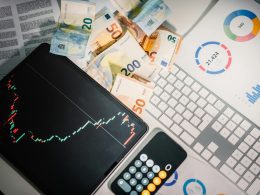Global economic uncertainty has become a significant factor influencing stock markets worldwide. This article delves into the causes, consequences, and trends associated with global economic uncertainty, emphasizing its impact on stock market performance. By exploring various dimensions, we aim to provide an easy-to-understand analysis of this complex topic.
Understanding Global Economic Uncertainty
What Is Global Economic Uncertainty?
Global economic uncertainty refers to the unpredictability in economic conditions caused by factors such as geopolitical tensions, natural disasters, pandemics, and shifts in monetary policy. These uncertainties can disrupt global trade, investment flows, and economic stability.
Key Causes of Global Economic Uncertainty
- Geopolitical Tensions: Conflicts, trade wars, and political instability can shake investor confidence.
- Natural Disasters: Events like hurricanes and earthquakes disrupt supply chains and economic productivity.
- Pandemics: Health crises, such as COVID-19, halt economic activity and create long-term uncertainty.
- Monetary Policies: Sudden changes in interest rates or inflation controls affect market expectations.
How Stock Markets React to Economic Uncertainty

1. Heightened Volatility and Market Corrections
Global economic uncertainty creates an environment of heightened volatility in stock markets. Investors, faced with unpredictable factors like geopolitical tensions, trade wars, and fluctuating interest rates, become increasingly risk-averse. This heightened anxiety translates into rapid and sometimes dramatic swings in stock prices, leading to frequent market corrections and increased uncertainty for investors.
2. Diminished Investor Confidence and Risk Aversion
When economic uncertainty looms large, investor confidence tends to wane. Concerns about potential downturns, job losses, and declining earnings prospects can lead investors to pull back from the market, opting for safer havens like bonds or cash. This flight to safety can exacerbate market downturns, as selling pressure mounts and liquidity dries up.
3. Impact on Corporate Earnings and Investment
Economic uncertainty can significantly impact corporate earnings and investment decisions. Businesses may delay or cancel expansion plans, reduce hiring, and cut back on research and development in response to a gloomy economic outlook. This can lead to slower economic growth, lower corporate profits, and ultimately, a negative impact on stock market performance.
4. Increased Demand for Safe-Haven Assets
During periods of heightened economic uncertainty, investors flock to safe-haven assets such as gold, government bonds, and the U.S. dollar. These assets are perceived as less risky and more stable during times of market turmoil. This increased demand for safe-haven assets can drive up their prices while simultaneously putting downward pressure on stock prices.
5. Impact on Consumer Spending and Economic Growth
Economic uncertainty can also dampen consumer spending, a key driver of economic growth. Consumers may become more cautious in their spending habits, opting to save rather than spend, as they fear potential job losses and declining incomes. This reduction in consumer spending can have a ripple effect throughout the economy, further impacting corporate earnings and stock market performance.
6. Policy Responses and Central Bank Intervention
Central banks often play a crucial role in mitigating the impact of economic uncertainty on stock markets. During times of crisis, central banks may implement measures such as lowering interest rates, injecting liquidity into the financial system, and engaging in quantitative easing to boost investor confidence and support economic growth. However, the effectiveness of these policies can vary depending on the nature and severity of the economic shock.
Volatility and Investor Behavior
Stock markets often experience heightened volatility during periods of global economic uncertainty. This is because:
- Investor Sentiment Wavers: Fear and speculation drive market behavior, leading to rapid sell-offs or speculative buying.
- Liquidity Reductions: Investors move funds into safer assets like gold or government bonds, reducing liquidity in stock markets.
Sector-Specific Impact
Certain industries are more sensitive to economic fluctuations:
- Technology and Financial Sectors: Highly reactive due to their dependence on consumer spending and investment.
- Energy and Commodities: Prices fluctuate based on global supply and demand disruptions.
- Healthcare and Utilities: Often considered defensive stocks, showing resilience during uncertain times.
Examples of Global Economic Uncertainty and Market Impacts
The COVID-19 Pandemic
During the early months of the pandemic, global stock markets plummeted due to widespread lockdowns and economic slowdowns. However, sectors like technology and healthcare experienced a strong rebound as remote work and medical innovations gained prominence.
Trade Wars and Geopolitical Events
Events like the U.S.-China trade war led to stock market instability, particularly in industries reliant on global supply chains. Investors sought refuge in less risky assets, causing temporary declines in equity markets.
Inflation and Interest Rate Hikes
Rising inflation and sudden increases in interest rates by central banks have historically triggered stock market corrections, as higher borrowing costs can reduce corporate profits.
Strategies for Navigating Stock Markets During Uncertain Times
Diversification
Spreading investments across sectors and asset classes helps mitigate risks associated with economic uncertainty. Diversified portfolios are less vulnerable to sector-specific downturns.
Investing in Defensive Stocks
Stocks in sectors like utilities, healthcare, and consumer staples are less affected by economic fluctuations, making them attractive during uncertain periods.
Monitoring Economic Indicators
Investors can stay informed by tracking indicators such as GDP growth, unemployment rates, and central bank policies. These metrics provide insights into potential market trends.
Long-Term Perspective
Adopting a long-term investment horizon can help investors weather short-term volatility and benefit from market recoveries over time.
Analysis Table: Factors Contributing to Global Economic Uncertainty
| Factor | Description | Impact on Stock Markets |
|---|---|---|
| Geopolitical Tensions | Political conflicts, trade disputes, and sanctions | Increased volatility, reduced investor confidence |
| Natural Disasters | Disruptions to supply chains and infrastructure | Temporary market downturns |
| Pandemics | Health crises causing economic slowdowns | Sharp declines followed by selective recoveries |
| Monetary Policies | Changes in interest rates and inflation controls | Adjustments in stock valuations |
| Technological Shifts | Rapid advancements or failures | Sector-specific gains or losses |
Comparative Table: Stock Market Responses to Recent Uncertain Events
| Event | Market Impact | Affected Sectors | Investor Reaction |
| COVID-19 Pandemic | Initial sharp decline, followed by rebound | Technology, Healthcare | Shift to safer and innovative assets |
| U.S.-China Trade War | Prolonged volatility | Manufacturing, Technology | Diversification into global markets |
| 2022 Interest Rate Hikes | Decline in growth stocks | Financials, Real Estate | Flight to value and defensive stocks |
| Ukraine-Russia Conflict | Energy price surges, market instability | Energy, Defense | Increased focus on commodities |
Conclusion
Global economic uncertainty remains an inevitable aspect of modern financial systems. By understanding its causes and effects, investors can better prepare for its impact on stock markets. Strategies like diversification, focusing on defensive stocks, and maintaining a long-term perspective can help navigate challenging times. Awareness of historical trends and key indicators also aids in making informed investment decisions.











